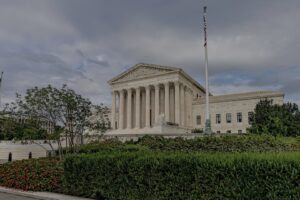The temptation for anyone – including lawyers – to take part in a whistleblower bonanza is all but irresistible. Moreover, federal whistleblower legislation and the federal agencies authorized to provide monetary whistleblower awards continue to proliferate, the latest being the Anti-Money Laundering Act of 2020 (the “AMLA”),[1] which was enacted in January 2021. The AMLA provisions were modeled on others enacted as recently as 2010, and whistleblower awards over the past decade have been nothing short of bountiful.
On May 19, 2021, for example, the Securities and Exchange Commission (the “SEC”) awarded $28 million to a whistleblower based on charges and a recovery not from the particulars reported by the whistleblower, but from an investigation in another geographic area altogether that arose as a result of the original tip. That is, the tip reporting wrongdoing in one geographic region did not itself lead to any recovery, but led to investigations by the SEC and another agency that ultimately resulted in charges and recovery in another geographic region not reported by the whistleblower.
In general, an agency authorized to provide whistleblower awards does so as a result of moneys collected in a judicial or administrative action (a “Covered Action”), provided the sum collected is at least $1 million. In aid of a Covered Action can be another judicial or administrative action brought by another entity[2] based upon the original information provided by the whistleblower (a “Related Action”). The Final Order in the aforementioned May 2021 award noted that, although “the Covered Action’s and the Related Action’s charges involved misconduct in geographical regions that were not the subject of the Claimant’s information” and there was “not a strong nexus between the Claimant’s information and the . . . charges,” an award would nonetheless be granted that “appropriately recognizes Claimant’s level of contribution to the Covered Action and Related Action.”
Another whistleblower award of similar magnitude was issued on April 20, 2020, when the SEC announced the payment of a bounty of more than $27 million to a whistleblower who alerted the agency to misconduct occurring, in part, overseas. But that award did not even make it onto the list of the top 10 awards ever paid by the SEC, which has now made over $900 million in whistleblower awards. As these awards may, by statute, only be from 10% to 30% of the amounts recovered, simple arithmetic tell us that, based on information from whistleblowers, the SEC has since collected anywhere from $3 to $9 billion for violations of the federal securities laws.[3]
These whistleblower awards are given pursuant to express authority contained in the Dodd-Frank Wall Street Reform & Consumer Protection Act of 2010 (“Dodd-Frank”).[4] The $28 million award in May 2021 is only the 10th largest the SEC has granted since inception of the program. The largest thus far was a whopping $114 million, issued on October 22, 2020, of which $52 million came from the SEC and the balance of $62 million from another agency, the identity of which is redacted in the Final Order.
“Where do I sign up?,” you may well ask. Receiving money of this magnitude is truly a life-changing event and creates a powerful incentive for anyone to provide information to the government that is likely to lead to large recoveries for fraud. This article therefore considers the propriety of a lawyer receiving a financial award for acting as a whistleblower[5] under recent federal programs authorizing rather munificent bounties. In the majority of cases, receipt by a lawyer of such an award would be not unjust enrichment, but rather unethical enrichment.
Whistleblowing by a lawyer all by itself – i.e., even without the added layer of financial incentive – is problematic in legal ethics, not only because it raises serious questions about disclosure of confidential client information but also because uncertainty surrounds a federal administrative agency’s assertion of authority to preempt state analogues of the Model Rules. The prospect of substantial financial gain[6] compounds the problem by creating incentives that, by their very nature, run counter to two fundamental and virtually peremptory norms of the legal profession: avoiding conflicts of interest under Model Rule 1.7 and either Model Rule 1.8 (for current clients) or Model Rule 1.9(c) (for former clients), as well as preserving the confidentiality of client information under Model Rule 1.6.
While reference is occasionally made by analogy in this article to judicial decisions addressing the question of lawyers receiving financial awards in qui tam actions[7] arising under the federal False Claims Act (“FCA”), this discussion will not address recovery by a lawyer as a “relator”[8] under the FCA or any of the many state analogues[9] of that statutory scheme.
Before proceeding, let’s briefly acknowledge the “elephant in the room”: A cynical lawyer might postulate, purely from a financial or retirement planning perspective, that the magnitude of whistleblower bounties makes the prospect of severe disciplinary action – even suspension or disbarment – an acceptable risk. The author will not comment on this risk-reward conjecture, other than to point out that the risk should not be underestimated, because the pot of gold at the end of the rainbow may not be found. The behavior that may give rise to discipline would always antedate any whistleblower award, neither the receipt nor the magnitude of which is a “sure thing” — dependent as they are upon:
- a determination by one or more government agencies to investigate;
- the outcome of the investigation;
- a decision to prosecute an enforcement action on the basis of that investigation;
- the success of that enforcement action; and
- the ultimate monetary recovery by the government.
In the English version of an adage from the ancient world, “There’s many a slip ‘twixt the cup and the lip.”
BACKGROUND
The whistleblowing provisions in question have been created by two separate regimes. The older one, scarcely more than a decade old, was enacted in Dodd-Frank; the more recent – enacted in 2021, in fact – is the AMLA.
The Dodd-Frank Regime
There are two pertinent provisions of Dodd-Frank. Section 748 amended the Commodity Exchange Act of 1936 (the “CEA”)[10] by adding a new Section 23, entitled “Commodity Whistleblower Incentives and Protection.” That provision directs the Commodity Futures Trading Commission (the “CFTC”) to pay awards, subject to certain limitations and conditions, to whistleblowers who voluntarily provide it with “original” information about a violation of the CEA that leads to the successful enforcement of an action brought by the CFTC that results in monetary sanctions exceeding $1,000,000, or the successful enforcement of a related action.[11] The CFTC promulgated a final rule[12] and created a “Whistleblower Program” to implement this provision. Similarly, Section 922 of Dodd-Frank amended the Securities Exchange Act of 1934 (the “Exchange Act”)[13] by adding a new Section 21F, directing the SEC to do likewise, mutatis mutandis.[14] The SEC has established its own “Office of the Whistleblower” and promulgated a final rule (since amended) to implement the elements of its respective statutory authorizations.[15] If an eligible whistleblower’s information leads to recovery by either the CFTC or the SEC of $1 million or more, then the whistleblower may receive anywhere from 10% to 30% of the actual amount recovered in the action or related actions.[16]
AMLA
A 1984 statute authorized the Treasury to pay an award to whistleblowers for original information about violations of the anti-money laundering laws[17] if it led to a criminal fine, civil fine, or asset forfeiture of at least $50,000, and capped the award at the lesser of 25% of the net amount collected or $150,000.[18] Modeled largely on the Dodd-Frank approach, the AMLA significantly enlarges this authority by authorizing Treasury to pay whistleblower awards of up to 30% for information leading to enforcement actions that result in penalties, disgorgement, and interest of at least $1 million.[19] The whistleblower must provide original information relating to a violation of the BSA to (1) the whistleblower’s employer, (2) Treasury, or (3) the Department of Justice. Any whistleblower who makes an anonymous claim for an award must be represented by counsel and will have to disclose the whistleblower’s identity before receiving the bounty.
In view of the newness of these provisions and the absence (as of this writing) of any final regulations implementing this new authority, the discussion that follows will focus on the ethics implications of the substantially similar Dodd-Frank whistleblower provisions, with which there have been 10 years of experience.
The Details under Dodd-Frank
To be eligible for a financial award from either of the Commissions, a whistleblower must meet certain statutory criteria. First, the whistleblower’s information must have been voluntarily provided and must lead to successful enforcement of a Covered Action[20] or Related Action.[21] Second, what the whistleblower provides must be “original information,” which means that it is:
- derived from the whistleblower’s “independent knowledge or independent analysis,”[22]
- not otherwise known from a source other than the whistleblower, and
- not “exclusively derived from an allegation made in a judicial or administrative hearing or government report, hearing, audit, or investigation, or from the news media, unless the whistleblower is a source of the information.”[23]
Third, the whistleblower may not knowingly and willfully make any false, fictitious, or fraudulent statement or representation, or use any false writing or document knowing that it contains any false, fictitious, or fraudulent statement or entry.[24]
As noted above, an eligible whistleblower may receive anywhere from 10% to 30% of the actual amount recovered by either of the Commissions, provided that the amount recovered is at least $1 million. The minimum award payable under the Dodd-Frank regime is therefore $100,000 (which is 10% of $1 million), but there appears to be no upper limit, as recoveries by the Commissions (and therefore whistleblower awards) can easily be in the millions or tens of millions of dollars. [25]
The magnitude of any such potential award – truly a life-changing amount of money – creates an ethically precarious situation for a lawyer whistleblower. Awards of this dimension provide a temptation toward thinking with less than complete objectivity, a temptation to which any person, including a lawyer, could easily succumb.
The Commissions, to their credit, limit the ability of lawyers to be eligible whistleblowers:
- The CFTC’s approach is to exclude from the “independent knowledge” component information that is obtained (A) via a communication that was subject to the attorney-client privilege or (B) “[i]n connection with the legal representation of a client on whose behalf the whistleblower, or the whistleblower’s employer or firm, have been providing services, and the whistleblower seek[s] to use the information to make a whistleblower submission for the whistleblower’s own benefit,” unless, in either instance, the disclosure is otherwise permitted by the applicable federal or state attorney conduct rules.[26]
- The SEC’s approach is to acknowledge from the outset the “special duties” lawyers owe their clients and the importance of furthering consultation between issuers of securities and their counsel in promoting overall compliance with the federal securities laws.[27] Thus, the SEC’s Dodd-Frank regulations announce that a lawyer will not generally be credited with providing “original information” if that information was obtained (1) from confidential communications subject to the attorney-client privilege, (2) from the legal representation of a client, or (3) from association with a firm retained by an organization to conduct an inquiry into possible violations of law, unless, in the case of (1) and (2), disclosure is permitted by the standards of lawyers’ professional conduct issued by the SEC in 2003[28] pursuant to the Sarbanes-Oxley Act (“SOX”),[29] by applicable state attorney conduct rules, or “otherwise.”[30]
The SEC’s lawyer conduct rules allow disclosure of client confidences outside the issuer organization only after the lawyer has reported “up the ladder” within the issuer’s organizational structure information about a “material violation”[31] by the “issuer”[32] or an officer, director, employee, or agent of the issuer.[33] The Part 205 rules do not mandate “reporting out” to the SEC but permit it, without the issuer’s consent – to the extent the lawyer reasonably believes necessary – in certain situations.[34]
At the same time, however, by incorporating the SOX regulations into the Dodd-Frank whistleblower framework, the SEC introduced a “wild card” into the ethics calculus, namely the assertion by the SEC and one of its former General Counsel that its SOX regulations preempt[35] inconsistent state ethics rules, at least with respect to that subset of the bar over which the SEC has any colorable authority (i.e. attorneys “appearing and practicing”[36] before the SEC).[37]
ETHICAL IMPLICATIONS
The Dodd-Frank whistleblower provisions create a significant ethical dilemma for the legal profession, especially for lawyers who practice (whether as in-house counsel or outside counsel) in the securities regulatory and commodities regulatory spheres. The dilemma arises from the magnitude of the awards, as the question of whether lawyers may ethically “blow the whistle” on clients, not just in the financial regulatory arena but across the spectrum of law practice, has already been settled in the Model Rules.
Conflicts of Interest
Model Rule 1.7 – Current Client
The enormous incentive to blow the whistle represented by the award levels authorized under Dodd-Frank seems ineluctably to create an impermissible conflict of interest for a lawyer[38] under Model Rule 1.7. Model Rule 1.7(a) prohibits (subject to a four-part set of exceptions enumerated in paragraph (b) but not pertinent here[39]) a lawyer from representing a client in the face of a concurrent conflict of interest, which exists if, inter alia, “the representation . . . will be materially limited by . . . a personal interest of the lawyer.”[40]
During the SEC’s Dodd-Frank whistleblowing rulemaking, the ABA expressed concerns about the impact of potential financial awards on the attorney-client privilege:
The ABA is concerned that any provisions in the final rules that would entitle whistleblowers to collect substantial awards may create a strong incentive for a lawyer to compromise his or her ethical obligations and undermine the client confidence that the U.S. Supreme Court recognized in the Upjohn case as critical to assuring the continued effectiveness of the attorney-client privilege and the work product doctrine. A client’s awareness that its attorneys may use information provided confidentially to obtain large whistleblower awards could well prevent the free flow of information necessary to the client’s right to effective counsel.[41]
The Dodd-Frank whistleblowing scenario, and the sheer size of potential awards payable by the Commissions, assume Brobdingnagian proportions when compared with considerations identified in two ABA ethics opinions addressing potential financial interest conflicts.[42] It is difficult to conceive that either of those contexts (an amount advanced as bail for a client or a security interest to guarantee payment of legal fees) would represent monetary amounts even remotely comparable to the order of magnitude of Dodd-Frank whistleblower awards. Yet even far smaller sums than those have been deemed sufficient to trigger the personal interest conflict under Model Rule 1.7(a).[43]
Even more so here, the magnitude of the lawyer’s pecuniary interest in the potential award irrevocably undermines any ability on the lawyer’s part to be a neutral and objective provider of legal advice. It is difficult to imagine, under the standard embodied by Model Rule 1.7(a)(2), a limitation more “material,” a lawyer’s interest more “personal,” or a conflict more trenchant and unyielding.
The correctness of this conclusion can be seen by comparison to the Second Circuit’s decision in United States v. Schwarz,[44] in which a lawyer representing one of two police officers charged with assaulting a suspect in custody subsequently received a $10 million retainer to represent the Police Benevolent Association in a civil action brought by the victim of the alleged assault. In contrast to what is possible under the whistleblower scenario, the police officer client actually gave informed consent to the potential conflict.[45] Nevertheless, the court held that the conflict was not waivable, as the lawyer’s financial interests “so permeated the defense that no meaningful waiver could be obtained.”[46]
The same conclusion was reached in the Dodd-Frank context by the New York County Law Association’s Committee on Professional Ethics in a 2013 opinion.[47] Viewing the ethical issues surrounding whistleblowing by lawyers in the abstract, the opinion interpreted New York’s version of Model Rule 1.7 and found that such a financial incentive “might tend to cloud a lawyer’s professional judgment.”[48] The opinion continued, “the potential payment of an anticipated whistleblower bounty in excess of $100,000 presumptively gives rise to a conflict of interest between the lawyer’s personal interest and that of the client.”[49]
Model Rule 1.7(b) raises the possibility that a personal interest conflict can be waived and consented to by the client.[50] Even in the case of a waiver of conflict, however, there is, as the NYCLA concluded, a “‘significant risk’ that the lawyer’s professional judgment or representation will be adversely affected by the lawyer’s personal interest, [and] in some circumstances the whistleblower-bounty conflict may be unwaivable.”[51]
To sum up: In the vast majority of situations – in view of the secrecy that underlies the whistleblowing process, the adversarial nature of the conduct, and the magnitude of the awards –
- Dodd-Frank whistleblowing
- on a current client
- by a lawyer acting as a lawyer
- who is eligible to receive a monetary award from either of the Commissions
creates an impermissible and unconsentable conflict of interest proscribed by Model Rule 1.7(a).
This author does not go so far as to suggest that there can never be circumstances in which a Dodd-Frank whistleblower award could ethically be sought by a lawyer who is acting as a lawyer. For example, it is conceivable that an individual lawyer might have so much personal or family wealth that even the magnitude of a Dodd-Frank whistleblower award would have no effect on that lawyer’s objectivity. Such circumstances, it is fair to assume, will be extremely rare, however, and so for the vast majority of lawyers, seeking such an award for information provided to one or both of the Commissions may constitute profoundly unethical conduct. Other possible exceptions might arise as contemplated by the Commissions’ regulations if, for example, outside counsel is participating in an internal corporate investigation into wrongdoing and has a reasonable basis for believing that disclosure of the information to either of the Commissions is necessary to prevent conduct that is likely to cause substantial injury to the financial interest or property of the entity or investors or that will impede an investigation of the wrongdoing.[52] An exception may also exist where at least 120 days have elapsed since the lawyer whistleblower provided the information to the relevant entity’s audit committee, chief legal officer, chief compliance officer (or their equivalents), or the whistleblower’s supervisor.[53]
Model Rule 1.8 – Current Client
In addition to Model Rule 1.7, a conflict of interest governed by Model Rule 1.8(a) arises where a lawyer knowingly acquires a pecuniary interest adverse to a client. Model Rule 1.8 is commonly understood to apply to business transactions with a client, but the “pecuniary interest” language is not limited to that context. The Rule proscribes entering into “a business transaction with a client or knowingly enter[ing] into an ownership, possessory, security or pecuniary interest adverse to a client.” (Emphasis added). The use of the disjunctive contemplates an ownership-based conflict for these categories of interests even in the absence of a business transaction with a client.
The “pecuniary interest” conflict exists unless all three conditions in Model Rule 1.8(a)(1)-(3) are satisfied. As these include full written disclosure, written advice that the client take legal advice from an independent source, and the client’s informed consent, the conditions simply cannot be met in the Dodd-Frank whistleblowing context.
Therefore, merely by arranging to be eligible for a substantial monetary award in the amount of 10% to 30% of any amount in excess of $1 million recovered from the client by either of the Commissions based on lawyer-supplied “original information,” the lawyer acquires the proscribed adverse pecuniary interest in violation of Model Rule 1.8(a).
In addition, Model Rule 1.8(b) prohibits a lawyer from using “information relating to representation of a client to the disadvantage of the client unless the client gives informed consent, except as permitted or required by these Rules.” Paramount among the “permitted or required” instances that might arise in the Dodd-Frank whistleblower context are the provisions of Model Rule 1.6(b)(2)-(3), which authorize, respectively, disclosure to prevent a client’s concurrent crime of fraud and disclosure to prevent, mitigate, or rectify a client’s prior crime or fraud, which, in each instance, is reasonably certain to result (or, in the case of prior client misconduct, has already resulted) “in substantial injury to the financial interests or property of another and in furtherance of which the client has used the lawyer’s services.” The extent of the disclosure must be what the lawyer “reasonably believes necessary” to accomplish these aims.
Assuming that a client engaged in wrongdoing of this magnitude is unlikely to give informed consent, a lawyer’s blowing the whistle to either of the Commissions is prohibited by Model Rule 1.8(b) as using confidential information relating to the representation to the disadvantage of the client, unless all three of the following conditions are met:
- the lawyer’s services were used in furtherance of a crime or fraud;
- which is reasonably certain to cause, or has already caused, substantial injury to the financial interests or property of one or more third parties; and
- the extent of the disclosure is reasonably believed by the lawyer to be necessary to prevent, mitigate, or rectify the client’s crime or fraud.
Model Rule 1.9 – Former Client
Model Rule 1.9(c)(1) prohibits the use of information relating to the representation of a former client to the disadvantage of the former client except as the Rules permit or require. The analysis is thus essentially the same[54] as what was just discussed under Rule 1.8(b). In applying New York’s version of Model Rule 1.9, NYCLA Op. 746 reached the same conclusion.
Common Law Fiduciary Duty
In addition to violations of the conflicts of interest provisions under the Model Rules, whistleblowing under the Dodd-Frank regime would violate a lawyer’s fiduciary duty at common law that would be breached were a lawyer to appropriate and disclose information of a current or former client for the lawyer’s own profit.[55] In the Restatement’s formulation, a lawyer is prohibited, except with the client’s consent, from using “confidential information of a client for the lawyer’s pecuniary gain other than in the practice of law [and] must account for any profits made by the use of such information.”[56] This strict duty, which applies even when the disclosure is permissible under the Model Rules and even when the client is not harmed by the disclosure, is an outgrowth of the common law of agency:[57]
The strict confidentiality duty of the Subsection is warranted for prophylactic purposes. A lawyer who acquires confidential client information as a result of a representation should not be tempted by expectation of profit to risk a possibly incorrect assessment of future harm to a client. There is no important societal interest in permitting lawyers to make unconsented use or revelation of confidential client information for self-enrichment in personal transactions.[58]
The prospect of having to account to the client and make restitution of the lawyer’s profit from whistleblowing would remove any temptation to violate the rules of professional conduct and risk disbarment in anticipation of living on easy street because of the magnitude of the anticipated bounty. Yet this prospect is illusory because of the mandated secrecy, noted above, surrounding Dodd-Frank whistleblower activities. The client will never know whether the “covered judicial or administrative action” was based on information provided by a whistleblower or, if so, who that whistleblower was. This practical difficulty underscores the need for the rules of professional conduct to act as a deterrent.
Confidentiality
In General
Model Rule 1.6 requires lawyers to refrain from disclosing confidential client information or using it adversely against the client, unless the client consents or an exception applies. The duty of confidentiality sweeps broadly. In particular, “confidential” information includes much more than information protected by the attorney-client privilege or work product doctrine. Under Model Rule 1.6 (as well as under many state incarnations), “confidential” information includes “all information relating to the representation, whatever its source.”[59]
The confidentiality rationale rests on the vital importance society places upon the “full, free and frank” exchange between lawyer and client, shielded from the intrusive eyes and ears of others, including the government. Without assurances of confidentiality, critical discussions between lawyer and client would necessarily be limited in a manner that would negatively affect the former’s ability to serve the latter. The benefits of confidentiality have long been recognized. As Chief Justice Lemuel Shaw of the Massachusetts Supreme Judicial Court said almost 200 years ago:
This principle we take to be this; that so numerous and complex are the laws by which the rights and duties of citizens are governed, so important is it that they should be permitted to avail themselves of the superior skill and learning of [attorneys] both in ascertaining their rights in the country, and maintaining them most safely in court … that the law has considered it the wisest policy to encourage and sanction this confidence, by requiring that on such facts the mouth of the attorney should be forever sealed.[60]
Consistent with this policy, lawyers must be able to gather all the necessary information and be free to explore with the client the client’s options. If a client perceives a “threat that these confidential communications will be shared with those whose interests may be adverse to the client, the chilling effect on the lawyer-client relationship becomes plain.”[61]
“A fundamental principle in the client-lawyer relationship is that, in the absence of the client’s informed consent, the lawyer must not reveal information relating to the representation.”[62] Disclosure of confidential information of any client is authorized under Model Rule 1.6 “to the extent the lawyer reasonably believes necessary”[63] either “to prevent the client from committing a crime or fraud that is reasonably certain to result in substantial injury to the financial interests or property of another”[64] or “to prevent, mitigate, or rectify substantial injury to the property of another,”[65] in each case where the client has used the lawyer’s services in furtherance of the crime or fraud. Those disclosure exceptions are simply not available where the lawyer’s services have not been so used.
Furthermore, with respect to an organizational client, the prescribed approach is set out in Model Rule 1.13, which requires a lawyer who knows of corporate misconduct to report such misconduct up-the-line (to the board of directors if necessary) unless the lawyer believes it is “not necessary in the best interest of the organization” to do so. Disclosure outside the organization without its consent is limited to situations where the highest authority in the organization has failed to address the legal violation the lawyer has reported and the lawyer “reasonably believes that the violation is reasonably certain to result in substantial injury to the organization” – and even then only “to the extent necessary to prevent substantial injury to the organization.”[66] In the case of an attorney who has been engaged to investigate matters within the corporation or to defend the organization or its constituents, however, reporting any discovered misconduct outside the organization is forbidden.[67]
Although the existence of conflicts of interest is enough of an ethical proscription against lawyers collecting bounties for Dodd-Frank whistleblowing, NYCLA Op. 746 devoted the majority of its analysis to confidentiality under applicable New York rules of professional responsibility. Because of the complexity of the regulatory framework established by the SEC in particular, which resurrects judicially unresolved questions of preemption first aired in the SOX era, some additional points are noteworthy.
Effect of the Dodd-Frank Regulatory Framework
The Commissions, in their respective regulations, limit the ability of lawyers to be eligible whistleblowers. The lodestar is the source of the information being conveyed by the whistleblower. As noted above, only “original” information qualifies. Information obtained by those occupying positions with fiduciary or quasi-fiduciary obligations (which would include in-house counsel and outside counsel)[68] is generally not considered “original,” but there are some exceptions as described below. Furthermore, the original information must be “voluntarily” provided. That means it must be provided prior to any request to the whistleblower (or anyone representing the whistleblower) from the Commissions, any other federal or state authority (e.g., DOJ or a State Attorney General), Congress, or any SRO about a matter to which the information in the whistleblower’s submission is relevant.[69]
The CFTC’s approach is to exclude from the “independent knowledge” component[70] any information that is:
- obtained via a communication that was subject to the attorney-client privilege, or
- in connection with the legal representation of a client on whose behalf the whistleblower (or the whistleblower’s employer or firm) have been providing services, and that the whistleblower seeks to use to make a submission for the whistleblower’s own benefit, unless, in either instance, the disclosure is otherwise permitted by the applicable federal or state attorney conduct rules.[71]
The SEC’s approach is to acknowledge from the outset the “special duties” lawyers owe their clients and the importance of furthering consultation between issuers of securities and their counsel in promoting overall compliance with the federal securities laws.[72] Thus, the SEC’s Dodd-Frank regulations announce that a lawyer will not generally be credited with providing “original information” if that information was obtained (1) from confidential communications subject to the attorney-client privilege, (2) from the legal representation of a client, or (3) from association with a firm retained by an organization to conduct an inquiry into possible violations of law, unless, in the case of (1) and (2), disclosure is permitted by the standards of lawyers’ professional conduct issued by the SEC in its 2003 Part 205 rules,[73] by applicable state attorney conduct rules, or “otherwise.”[74]
By incorporating the Part 205 rules into the Dodd-Frank whistleblower framework, however, the SEC introduced some complexities into the ethics calculus. These complexities include not only exceptions to the requirement of confidentiality that are not found in the Model Rules, but also the (as yet untested) assertion by the SEC that its regulations preempt state avatars of the Model Rules in certain circumstances.
Dodd-Frank whistleblowing, by its nature, entails “reporting out” – specifically to the government. Yet the SOX regulations invoked by the SEC do not contemplate “reporting out” except in exceptional circumstances. To begin with, those regulations do not apply to all lawyers but only to a subset: those “appearing and practicing” before the SEC. Secondly, the default requirement for such attorneys under the Part 205 regulatory regime is emphatically not blowing the whistle to the SEC; rather, those regulations require reporting “evidence of a material violation”[75] of the securities laws by the issuer (or any of its officers, directors, employees or agents) to the CEO or, perhaps more likely, the Chief Legal Officer,[76] and thereafter if no satisfactory action is taken, “up the ladder” within the corporate organization, all the way to the board of directors if necessary. [77] This procedure is, in essence, consistent with Model Rule 1.13(b), though the latter requires not merely credible evidence of a reasonably likely violation but actual knowledge[78] of an existing or impending violation.
Incorporating the Part 205 rules into the Dodd-Frank whistleblower framework also inserts into the analysis a potential “wild card,” namely the assertion, made both by the SEC and by one of its former General Counsel,[79] that the SOX regulations[80] preempt inconsistent state ethics rules,[81] at least with respect to that subset of the bar over which the SEC has any colorable authority (to wit: attorneys “appearing and practicing” before the SEC). If the SEC’s whistleblower regulations preempt inconsistent state ethics rules, that could theoretically preclude state disciplinary action and the salutary effect on attorney conduct of the threat of such disciplinary action for flagrant violations of confidentiality, privilege, and conflict of interest rules.
The preemption debate began shortly after promulgation of the final Part 205 rules, with both the Washington State Bar[82] and the California Bar[83] taking the position that the SEC lacked preemption authority.[84] In the intervening years, no court has yet had occasion to rule on the SOX/state ethics rules preemption question.[85]
Logically, however, it would seem that whatever legal or policy arguments might support preemption in the SOX/Part 205 context are simply absent in the Dodd-Frank whistleblower context. For one thing, there was not – and cannot have been – any preemptive intent regarding regulation of the Bar on the part of Congress when enacting Dodd-Frank, since the two whistleblower provisions predominantly apply to individuals who are not lawyers. More tellingly, in enacting Dodd-Frank Congress was very attentive to preemption issues and specifically legislated on that topic in other areas,[86] but Section 922 (the SEC whistleblower provision) is silent on preemption.[87] For another, the secrecy requirements of Dodd-Frank whistleblowing are, in the case of a lawyer-whistleblower, incompatible not only with the default confidentiality principles of the Model Rules and the attorney-client privilege but also the SEC’s own Part 205 rules, which require internal, up-the-ladder reporting and contemplates “reporting out” only when that default procedure does not function as intended.
Accordingly, confidentiality principles are another reason to be chary of whistleblowing by lawyers. Such whistleblowing constitutes disclosure of client information in violation of the default confidentiality provisions of the Model Rules and may only be done ethically where those Rules (or their state avatars) expressly so permit or require.[88]
CONCLUSION
Seeking a monetary award from the SEC or the CFTC for whistleblowing on a client almost certainly creates a personal interest conflict, within the meaning of Model Rule 1.7(a)(2). Disclosing the client’s information to a federal agency, other than as specifically authorized under the Model Rules, violates the confidentiality requirements of Model Rule 1.6. A lawyer, acting as a lawyer, who pursues such an award does so at extreme peril of disciplinary action and should, at a minimum, consult the ethics rules and authorities in each jurisdiction in which he or she is admitted.
[1] This constitutes Titles 60-63 of the massive (nearly 1500 pages) William M. (Mac) Thornberry National Defense Act of 2021, Pub. L. No.: 116-283, §§ 6001 et seq. Another, related piece of the puzzle is Title 64, the Corporate Transparency Act ( the “CTA”), establishing disclosure requirements for beneficial owners of certain business enterprises. The Business Law Section has already done two “In the Know” webinars on the CTA, one addressing the substance and the other addressing some of the ethical implications.
[2] Possible other entities include: the Department of Justice; an appropriate department or agency of the Federal Government, acting within the scope of its jurisdiction; a self-regulatory organization; a state attorney general in connection with a criminal investigation; an appropriate state regulatory agency or department. Other possibilities are, in the case of commodities-related whistleblowers, a foreign futures authority; and in the case of securities-related whistleblowers, the Public Company Accounting Oversight Board, a foreign securities authority, and a foreign law enforcement authority. See 7 U.S.C. § 26(h)(2)(C)(I)-(VI); 15 U.S.C. § 78u-6(h)(2)(D) (I)-(VIII).
[3] Actually, the recovery amount may be somewhat higher, since the statute does not authorize whistleblower awards for collection of monetary sanctions of $1 million or less. See 15 U.S.C. § 78u-6(a)(1) (definition of “covered judicial or administrative action”).
[4] Pub. L. No. 111-203, 124 Stat. 1326 (2010).
[5] The term “whistleblower” is susceptible of many different definitions in different contexts. See Julian W. Kleinbrodt, Pro-Whistleblower Reform in the Post-Garcetti Era, 112 Mich. L. Rev. 111, 113 (2013) (observing that “[t]here is no single definition of a whistleblower, and it takes on different contours in different contexts”). Although the term is neither defined nor used in the ABA Model Rules of Professional Conduct (2018) [hereinafter the “Model Rules”], references in this article to a lawyer as “whistleblower” should be understood to mean a lawyer who reports a client’s wrongdoing to a governmental or law enforcement agency. Cf. Black’s Law Dictionary (9th ed. 2009) (defining a whistleblower as “[a]n employee who reports employer wrongdoing to a governmental or law-enforcement agency”).
[6] As discussed below, the minimum award payable is $100,000 and could fairly easily reach millions of dollars.
[7] The descriptor qui tam is short for the Latin phrase “qui tam pro domino rege quam pro se ipso in hac parte sequitur,” which refers to one who brings an action on behalf of the king as well as himself. This regime, despite certain similarities, is conceptually different from the Dodd-Frank regulatory whistleblower landscape considered in this article.
[8] A “relator” is an individual who brings suit under the FCA in the name of the government, which has sixty days to intervene in the action. If the government declines to intervene, the relator may proceed alone. 31 U.S.C. § 3730(b). If the action is successful, the relator stands to receive an award of 15-25% of the proceeds (whether a verdict or settlement) if the government has intervened and litigated the matter and between 25-30% if the government has not intervened. 31 U.S.C. § 3730(d). State false claims acts operate in similar fashion.
[9] E.g., the N.Y. False Claims Act, N.Y. State Fin. Law §§ 187 et seq.
[10] 7 U.S.C. §§ 1 et seq.
[11] Dodd-Frank § 748, 124 Stat. 1739 (creating CEA § 23, 7 U.S.C. § 26).
[12] CFTC, Final Rules for Implementing the Whistleblower Provisions of Section 23 of the Commodity Exchange Act, 76 Fed. Reg. 53,172 (Aug. 25, 2011) (codified at 17 C.F.R. §§ 165.1 et seq.).
[13] 15 U.S.C. §§ 78a et seq.
[14] Dodd-Frank § 922 (creating Section 21F of the Exchange Act, 15 U.S.C. § 78u-6).
[15] See SEC, Securities Whistleblower Incentives and Protections, 76 Fed. Reg. 34,300 (June 13, 2011) (codified at 17 C.F.R. §§ 240.21F-1 et seq.) [hereinafter “SEC Dodd-Frank Release”].
[16] 7 U.S.C. § 26(b)(1) (CFTC); 15 U.S.C. §78u-6(b)(1) (SEC). The CFTC and the SEC shall jointly be referred to hereinafter as the “Commissions.”
[17] E.g., Currency and Foreign Transactions Reporting Act of 1970, Pub. L. No. 91-508, 84 Stat. 1114 (1970) (codified as amended in scattered sections of 12, 18, and 31 U.S.C. and commonly known as the “Bank Secrecy Act”) [hereinafter referred to as the “BSA”].
[18] 31 U.S.C. § 5323(a)-(b).
[19] Pub. L. No. 116-283, § 6314.
[20] 7 U.S.C. § 26(b)(1) (CFTC); 15 U.S.C. § 78u-6(b)(1) (SEC). As noted earlier, the term “covered judicial or administrative action” means any judicial or administrative action brought by the CFTC or the SEC, as the case may be, that results in monetary sanctions exceeding $1million. 7 U.S.C. § 26(a)(1) (CFTC); 15 U.S.C. § 78u-6(a)(1) (SEC).
[21] A “related action” is defined as a judicial or administrative action brought by a statutorily designated entity that is based upon the original information provided by a whistleblower that led to the successful enforcement by either of the Commissions of a “covered judicial or administrative action.” 7 U.S.C. § 26(a)(5) (CFTC); 15 U.S.C. § 78u-6(a)(5) (SEC). Statutorily designated entities include, inter alia, (1) the Department of Justice; (2) an appropriate Federal regulatory authority (e.g., one of the bank regulatory agencies); (3) a self-regulatory organization; (4) a State attorney general in connection with any criminal investigation; (5) an appropriate State regulatory authority; and (6) a foreign law enforcement or regulatory authority. See 7 U.S.C. § 26(h)(2)(C)(i) (CFTC); 15 U.S.C. §78u-6(h)(2)(D)(i) (SEC).
[22] These concepts are not defined in Dodd-Frank but are defined by the Commissions in their separate regulations. The term “independent knowledge” means factual information in the whistleblower’s possession that is not derived from publicly available sources. The term “independent analysis” means the whistleblower’s examination and evaluation (whether performed alone or with others) of information (including publicly available information), which then reveals information that is not generally known or available to the public. See generally 17 C.F.R. § 165.2(g)-(h) (CFTC), 17 C.F.R. § 240.21F-4(b)(2)-(4). (SEC).
[23] 7 U.S.C. § 26(a)(4) (CFTC); 15 U.S.C. §78u-6(a)(3) (SEC).
[24] 7 U.S.C. § 26(m) (CFTC); 15 U.S.C. § 78u-6(i) (SEC). Such false or fraudulent statements or conduct are independently criminalized under 18 U.S.C. § 1001 and, in the case of a whistleblower who is a lawyer, would subject the lawyer to discipline under Model Rule 8.4(b) and (c).
[25] In addition to the awards described at the beginning of this article see, e.g., CFTC, Press Release, CFTC Announces Whistleblower Award of More Than $10 Million (April 4, 2016), available at http://www.cftc.gov/PressRoom/PressReleases/pr7351-16. The SEC typically redacts its whistleblower grant orders, but a law firm that represents whistleblowers revealed on its website an award of $22.5 million dated June 30, 2016. See The Employment Law Group, Rewards Tracker, available at http://sec-whistleblowers.com/rewards-tracker/.
[26] 17 C.F.R. § 165.2(g)(2)-(3).
[27] See generally SEC Dodd-Frank Release, 76 Fed. Reg. at 34,314.
[28] SEC, Implementation of Standards of Professional Conduct for Attorneys, Securities Act Release No. 33-8185, 68 Fed. Reg. 6296 (Feb. 6, 2003) (currently codified at 17 C.F.R. § 205.3(d)(2)). These regulations (known colloquially as the “Part 205 rules”) apply only to lawyers “appearing and practicing” before the SEC in the context of providing legal services to an “issuer” of securities. “Issuer” in this context is broadly defined to include certain affiliates for which the lawyer has provided services on behalf of, or at the behest of or for the benefit of, the issuer, regardless of whether the lawyer is employed or retained by the issuer. Id. § 205.2(h). Likewise, “appearing and practicing” is broadly defined and includes, inter alia, merely advising on U.S. securities laws or regulations in connection with a document that the lawyer has notice will be filed or submitted (or incorporated into a document to be filed or submitted) to the SEC. Id. § 205.2(a).
[29] Public Company Accounting Reform and Investor Protection Act of 2002, Pub. L. No. 107-204, 116 Stat. 745 (2002) (which became colloquially known, after its Senate and House sponsors, Paul Sarbanes and Michael Oxley, as the Sarbanes-Oxley Act).
[30] 17 C.F.R. § 240.21F-4(b)(4)(i), (ii), (iii)(C). Note that the SEC has not (to date) explained what facts or circumstances might give rise to the “otherwise” exclusion.
[31] Referring to both federal and state laws and obligations, this term is defined for purposes of the Part 205 rules as “a material violation of an applicable United States federal or state securities law, a material breach of fiduciary duty arising under United States federal or state law, or a similar material violation of any United States federal or state law.” 17 C.F.R. § 205.3(i).
[32] See supra note 28 (describing broad definition of “issuer” for this purpose).
[33] See generally 17 C.F.R. § 205.3(b).
[34] The circumstances include: (i) To prevent the issuer from committing a material violation that is likely to cause substantial injury to the financial interest or property of the issuer or investors; (ii) To prevent the issuer, in the course of an SEC investigation or administrative proceeding, from committing perjury, proscribed in 18 U.S.C. § 1621; suborning perjury, proscribed in 18 U.S.C. § 1622; or committing any act proscribed in 18 U.S.C. § 1001 that is likely to perpetrate a fraud upon the SEC; or (iii) To rectify the consequences of a material violation by the issuer that caused, or may cause, substantial injury to the financial interest or property of the issuer or investors in the furtherance of which the attorney’s services were used. 17 C.F.R. § 205.3(d)(2)(i)-(iii).
Differences between the SEC’s rule and Model Rule 1.13 are discussed later in the article.
[35] No preemption issue exists with respect to the CFTC, which has no SOX responsibilities and has not incorporated by reference any other regulations purporting to govern attorney conduct.
[36] See supra note 28.
[37] The validity of this assertion is open to question (see infra notes 79-85 and accompanying text), and there has even been a lack of consensus on the issue among former SEC General Counsels.
[38] This article focuses only on situations in which a lawyer is acting as a lawyer and is representing a client involved in the conduct giving rise to the possibility of whistleblowing. Thus, in the case of a business entity, this discussion does not address the conduct of a whistleblower who has a law degree and may well be licensed to practice law in one or more jurisdictions but who is acting as a director, officer, employee, or agent without any attorney-client relationship with the organization.
[39] The client’s informed consent is a basic component of the exceptions in paragraph (b). Whistleblowing under the Dodd-Frank framework, by its nature, precludes seeking the client’s consent. In order not to impair the efficacy of any agency investigation, Dodd-Frank whistleblowing is confidential, and in fact the Commissions are generally required to keep the information confidential. See 7 U.S.C. § 26(h)(2)(A) (CFTC); 15 U.S.C. § 78u-6(h)(2)(A) (SEC). Moreover, the adversary nature of a lawyer blowing the whistle on a client would seem to render the conflict non-consentable per se.
[40] Model Rule 1.7(a)(2).
[41] Letter from Stephen N. Zack, President, Am. Bar Ass’n, to Hon. Mary L. Schapiro, Chair, Securities and Exchange Commission, at 3 (May 11, 2011).
[42] See, e.g., ABA Formal Ethics Op. 432 (2004) (advancing bail on behalf of accused client may pose a conflict if amount of bail is “material” to the lawyer); ABA Formal Ethics Op. 427 (2002) (discussing the propriety of a lawyer taking a security interest in property of the client to guarantee payment of legal fees).
[43] Cf. United States v. Quest Diagnostics Inc., 734 F.3d 154 (2d Cir. 2013) (lawyer violated applicable New York professional conduct rules by filing qui tam action against former employer with respect to matters substantially related to prior representation of employer).
[44] 283 F.3d 76 (2d Cir. 2002).
[45] The court explained the potential conflict as the disincentive, created by the lawyer’s simultaneous representation of the PBA, to seek to obtain acquittal for the police officer client by endeavoring to place the blame entirely on the other police officer. Id. at 94-95.
[46] Id. at 96 (quoting United States v. Fulton, 5 F.3d 605, 613 (2d Cir. 1993)).
[47] N.Y. Cnty. Lawyers’ Ass’n., Comm. on Professional Ethics, Ethical Conflicts Caused by Lawyers as Whistleblowers under the Dodd-Frank Wall Street Reform Act of 2011, Formal Op. 746 (Oct. 7, 2013) [hereinafter referred to as “NYCLA Op. 746”].
[48] Id. at 10-11.
[49] Id. at 11.
[50] A recent ethics opinion of the New York State Bar Association concluded that neither a lawyer nor his firm may represent a client in litigation funded by a litigation financing company in which the lawyer is an equity holder. Among several ethical concerns, the opinion identified New York’s version of Rule 1.7(a)(2). The opinion found that the lawyer’s personal and financial interest in the financing company could create a significant risk that the lawyer’s professional judgment could be adversely affected by the lawyer’s own interests. “For instance, the Company may have an interest in expediting (or prolonging) the litigation to enhance the value of the Company’s investment but which may not equate with the client’s interests in going to trial (or reaching an early settlement). A continuing duty exists to protect the client from this risk.” N.Y. State Bar Ass’n Comm. on Prof’l Ethics, Op. 1145 ¶ 12 (March 7, 2018). The opinion noted, however, that this conflict could “be adequately disclosed and waived under Rule 1.7(b) if the other requirements of Rule 1.7(b) are fulfilled.” Id.
[51] NYCLA Op. 746, at 11-12 (citing Schwarz).
[52] See 17 C.F.R. § 165.2(g)(7)(i)-(ii) (CFTC), 17 C.F.R. § 240.21F-4(b)(4)(v)(A)-(B) (SEC).
[53] See 17 C.F.R. § 165.2(g)(7)(iii) (CFTC), 240.21F-4(b)(4)(v)(C) (SEC).
[54] Actually, the coverage of Model Rule 1.9 is a little broader. Whereas Rule 1.8(b) only covers a client represented by the lawyer, Rule 1.9(c)(1) applies to a client formerly represented by either the lawyer or by his or her present or former law firm.
[55] See Fremont Reorganizing Corp. v. Faigin, 198 Cal. App. 4th 1153 (2011) (former in-house counsel who told insurance authorities about former employer’s allegedly illegal conduct could be liable for breach of fiduciary duty and duty of confidentiality).
[56] Restatement (Third) of the Law Governing Lawyers § 60(2).
[57] Id. cmt. j.
[58] Id.
[59] Model Rule 1.6 cmt. [3].
[60] Hatton v. Robinson, 31 Mass. (14 Pick.) 416, 422 (1833).
[61] ABA Formal Op. 368 (1992).
[62] Model Rule 1.6 cmt. [2].
[63] Model Rule 1.6(b).
[64] Model Rule 1.6(b)(2).
[65] Model Rule 1.6(b)(3).
[66] Model Rule 1.13(c). In contrast to Model Rule 1.6(b)(3), Model Rule 1.13 does not, by its terms, authorize disclosure to prevent, mitigate, or rectify substantial injury to the property of another.
[67] Model Rule 1.13(d).
[68] See, e.g., 17 C.F.R. § 240.21F-4(b)(4).
[69] See 17 C.F.R. § 165.2(o) (CFTC); 17 C.F.R. § 240.21F-4(a) (SEC).
[70] See supra note 22 and accompanying text.
[71] 17 C.F.R. § 165.2(g)(2)-(3).
[72] See generally SEC Dodd-Frank Release, 76 Fed. Reg. at 34,314.
[73] SEC, Implementation of Standards of Professional Conduct for Attorneys, Securities Act Release No. 33-8185, 68 Fed. Reg. 6296 (Feb. 6, 2003) (currently codified at 17 C.F.R. § 205.3(d)(2)).
[74] 17 C.F.R. § 240.21F-4(b)(4)(i), (ii), (iii)(C). Note that the SEC has not (to date) explained what facts or circumstances might give rise to the “otherwise” exclusion.
[75] See id. § 205.2(e) (defining “evidence of a material violation”). This definition of “evidence of a material violation” is a notorious double-negative standard: “credible evidence, based upon which it would be unreasonable, under the circumstances, for a prudent and competent attorney not to conclude that it is reasonably likely that a material violation has occurred, is ongoing, or is about to occur.” Cf. Keith R. Fisher, The Higher Calling: Regulation of Lawyers Post-Enron, 37 U. Mich. J. L. Reform 1017, 1104 (2004) (suggesting that this standard comes “perilously close to ‘knew or should have known’ standard of proof – in other words, scienter”). As noted above, the term “material violation” is itself defined as a “material violation of an applicable United States federal or state securities law, a material breach of fiduciary duty arising under United States federal or state law, or a similar material violation of any United States federal or state law.” 17 C.F.R. § 205.2(i).
[76] Id. § 205.3(b)(1), (c)(1). The duplication in two separate paragraphs refers to two situations: one for issuers that have not established a Qualified Legal Compliance Committee and the other for issuers that have. If the reporting attorney is a subordinate attorney, however, he may content himself with reporting to his supervisor and need take no further action. Id. § 205.5(c). This is actually somewhat less onerous than a subordinate lawyer’s obligations under Model Rule 5.2(b), compliance with which requires that the supervisory lawyer’s resolution of an “arguable” question of professional duty be “reasonable” and that the subordinate act in accordance with that resolution.
[77] Id. § 205.3(b)(3).
[78] Cf. Model Rule 1.0(f) (defining knowledge-related terms).
[79] See Letter from Giovanni P. Prezioso, General Counsel, SEC, to J. Richard Manning, President, Wash. State Bar Ass’n (July 3, 2003).
[80] No preemption issue exists with respect to the CFTC, which has no SOX responsibilities or other regulations purporting to govern attorney conduct.
[81] See 17 C.F.R. § 205.1 (“These standards supplement applicable standards of any jurisdiction where an attorney is admitted or practices and are not intended to limit the ability of any jurisdiction to impose additional obligations on an attorney not inconsistent with the application of this part. Where the standards of a state or other United States jurisdiction where an attorney is admitted or practices conflict with this part, this part shall govern”).
[82] See Ethics 2003 Committee of Wash. State Bar Ass’n. Internal Formal Ethics Opinion 2003, available at http://www.wsba.org/lawyers/groups/ethics2003/formalopinion.doc (opining that lawyers admitted in the State of Washington may not ethically reveal client confidences and secrets unless authorized to do so under Washington’s rules of professional conduct, regardless of the permissive disclosure provisions of the Part 205 Rules).
[83] See, e.g., State Bar of California, Ethics Alert, The New SEC Attorney Conduct Rules v. California’s Duty of Confidentiality (Spring 2004); Corporations Comm. of the Business Law Section of the California State Bar, Conflicting Currents: The Obligation to Maintain Inviolate Client Confidences and the New SEC Attorney Conduct Rules, 32 Pepp. L. Rev. 89 (2004) (arguing that the SEC’s preemption assertion exceeds its authority).
[84] But cf. Roger Cramton, George Cohen & Susan Koniak, Legal and Ethical Duties of Lawyers After Sarbanes-Oxley, 49 Vill. L. Rev. 725 (2004) (supporting an argument for implied preemption).
[85] Also worth noting, even en passant, are (1) that in SOX Congress did not expressly grant the SEC preemptive authority over state regulation of lawyers, and (2) that similar attempts by another federal administrative agency to invoke regulatory authority over lawyers in other regulatory contexts – the privacy provisions of the Gramm-Leach-Bliley Act of 1999 and the Fair and Accurate Credit Transactions Act of 2003 – were resoundingly rejected when challenged by the bar. See New York State Bar Ass’n v. FTC, 276 F. Supp.2d 110 (D.D.C. 2003) (holding that the FTC exceeded its authority in extending the statutory term of art “financial institution” to lawyers), aff’d sub nom. American Bar Ass’n v. FTC, 430 F.3d 457 (D.C. Cir. 2005); American Bar Ass’n v. FTC, 671 F. Supp.2d 64 (D.D.C. 2009) (holding that nothing in the FACT Act contained an “unmistakably clear” grant of authority that would permit FTC intervention into regulating the practice of law), vacated as moot, 636 F.3d 641 (D.C. Cir. 2011) (concluding that intervening legislation clarifying that lawyers were not subject to the FTC rule had mooted the controversy).
[86] E.g., Dodd-Frank § 767 (preempting State gaming and bucket-shop laws), § 1041(a) (preempting state consumer protection laws to the extent, and only to the extent, they are inconsistent with federal consumer protection laws under Dodd-Frank Title X), and § 1044 (prescribing state law preemption standards for national banks and their subsidiaries).
[87] Likewise Dodd-Frank § 748, amending the CEA, evinces no preemptive intent.
[88] Examples include Model Rules 4.1 and 1.6(b)(2)-(3), and 1.13(c).

















